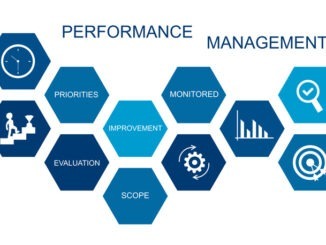Feedback is crucial for personal and professional growth. But let’s face it, most of us don’t relish giving or receiving it. This discomfort often stems from past negative experiences and a lack of training in giving feedback
Despite its challenges, effective feedback is crucial, as workplace conflict incurs significant economic costs annually. Constructive feedback can mitigate conflict and improve productivity.
Feedback should be viewed as a two-way street. When leaders are open to receiving feedback and demonstrate a willingness to improve, it fosters trust and loyalty within the team. Effective feedback can be positive, negative, or neutral. It should always be supportive, encouraging, and specific to facilitate growth and improvement.
Feedback inspires growth, gives purpose, and improves engagement. Regular communication fosters a culture of clarity and mutual growth, enhancing commitment to the organisation.
Mastering effective feedback
Mastering effective feedback requires clarity, focus, and timeliness. Here are seven tips for improving your feedback delivery:
- Know your purpose: Before providing feedback, clarify your objective. Whether it’s to encourage improvement, acknowledge achievements, or address specific issues, having a clear purpose guides your approach.
- Focus on behaviour, not the person: It’s essential to separate the behaviour from the individual. Instead of making judgments about the person’s character, focus on describing the specific actions or behaviours that need addressing.
- Highlight the impact: When discussing behaviours, emphasise their impact on the team, project, or organisation. By illustrating how certain actions affect outcomes, individuals are more likely to understand the significance of change.
- Ask open-ended questions: Encourage dialogue by asking open-ended questions that prompt reflection and discussion. This approach fosters engagement and allows individuals to share their perspectives and insights.
- Be specific: Avoid vague or general feedback that lacks clarity. Instead, provide specific examples and observations to help individuals understand what actions or behaviours require adjustment.
- Be timely: Deliver feedback promptly to address issues while they’re still relevant. Delaying feedback can allow problems to escalate and hinder progress towards resolution.
- Consider the recipient’s readiness: Before providing feedback, assess the recipient’s readiness to receive it. Respect their emotional state and choose an appropriate time and place for the discussion.
- Be mindful of the moment: Adapt your feedback delivery based on the situation. Determine whether the moment calls for praise, constructive criticism, or a combination of both.
- Focus on solutions: Offer constructive feedback that includes actionable steps for improvement. Instead of dwelling on problems, guide individuals towards practical solutions and strategies for growth.
- Encourage follow-up: After delivering feedback, encourage ongoing communication and follow-up discussions. Check in periodically to assess progress, offer support, and provide additional guidance as needed.
Avoiding common mistakes
Feedback can backfire if not delivered thoughtfully. Here are some common mistakes to avoid:
- Focusing on the person, not the behaviour
- Providing vague feedback
- Ignoring feedback preferences
- Sandwiching negative feedback between positives
- Lacking facts or specifics
- Speculating about motivations
- Providing overly detailed feedback
- Making indirect threats
- Using humour inappropriately
- Phrasing feedback as a question
Feedback plays a crucial role in professional growth and organisational success. By understanding the importance of effective feedback and avoiding common pitfalls, leaders can create a culture of continuous improvement and excellence in the workplace.




Be the first to comment